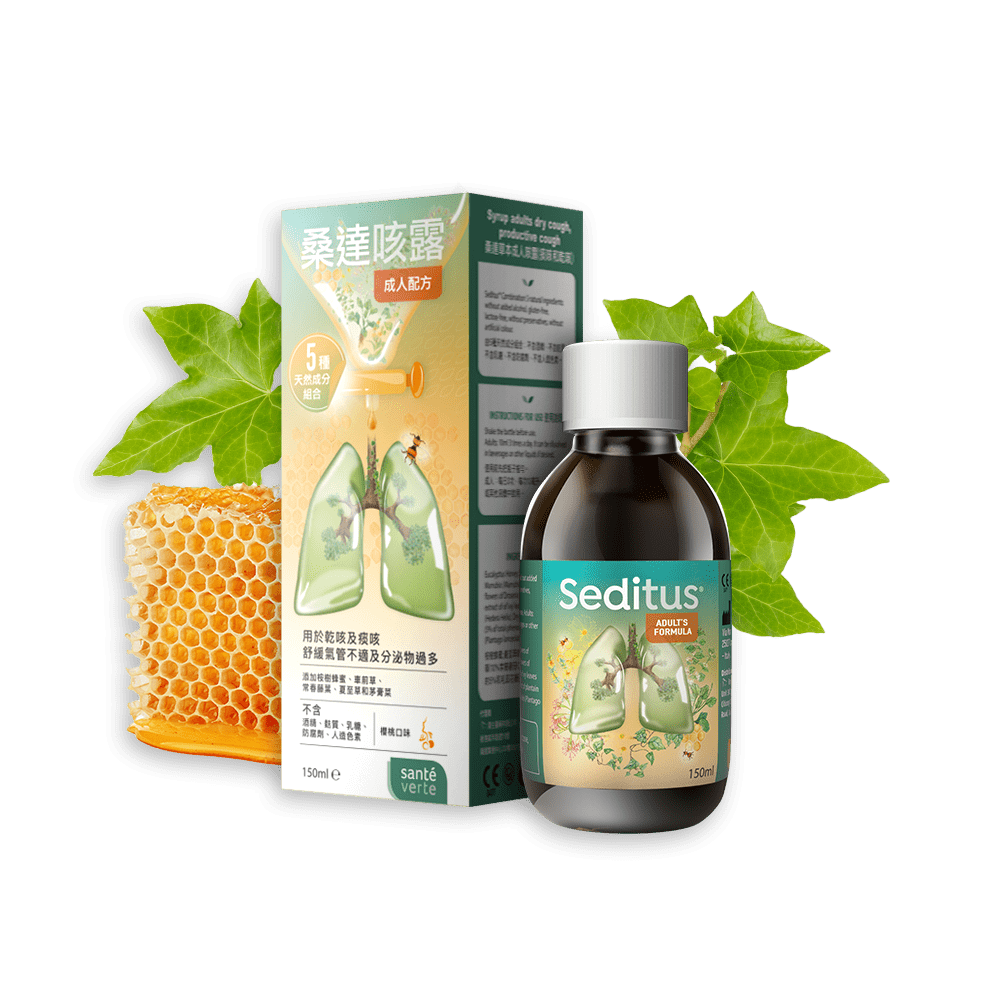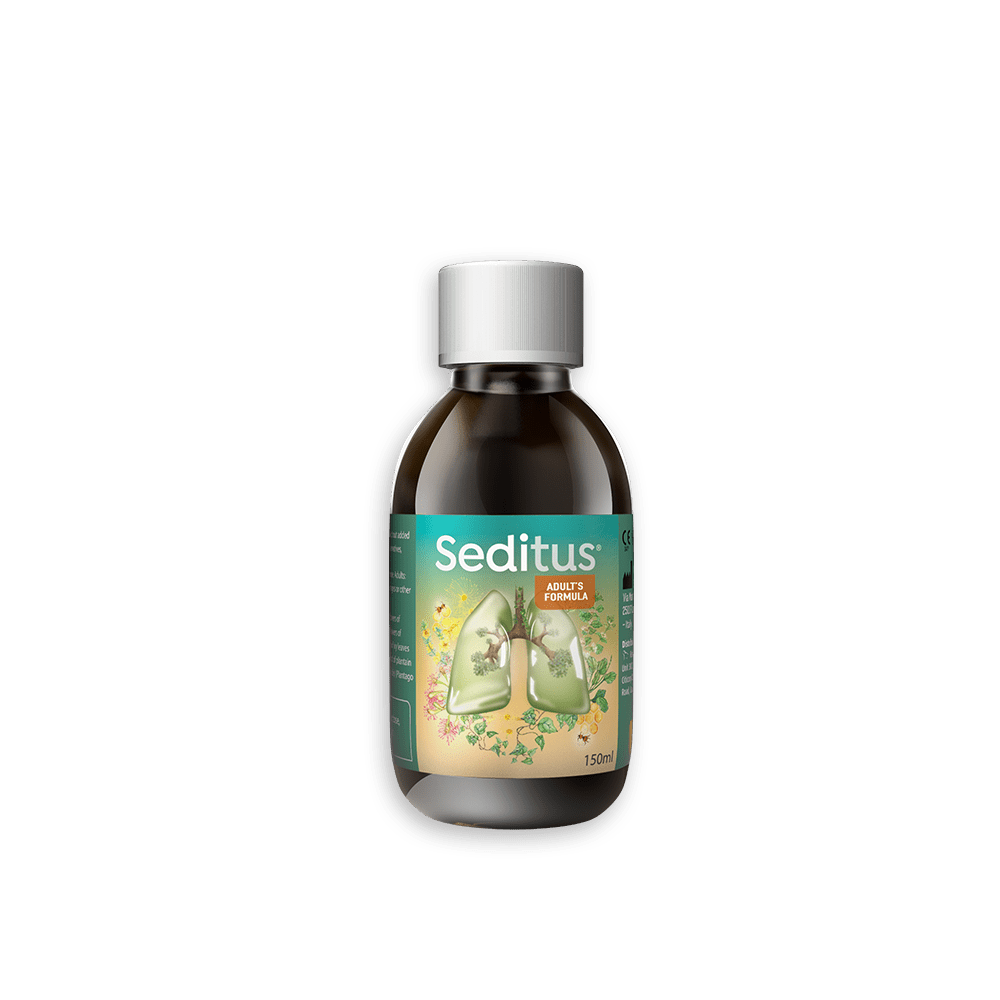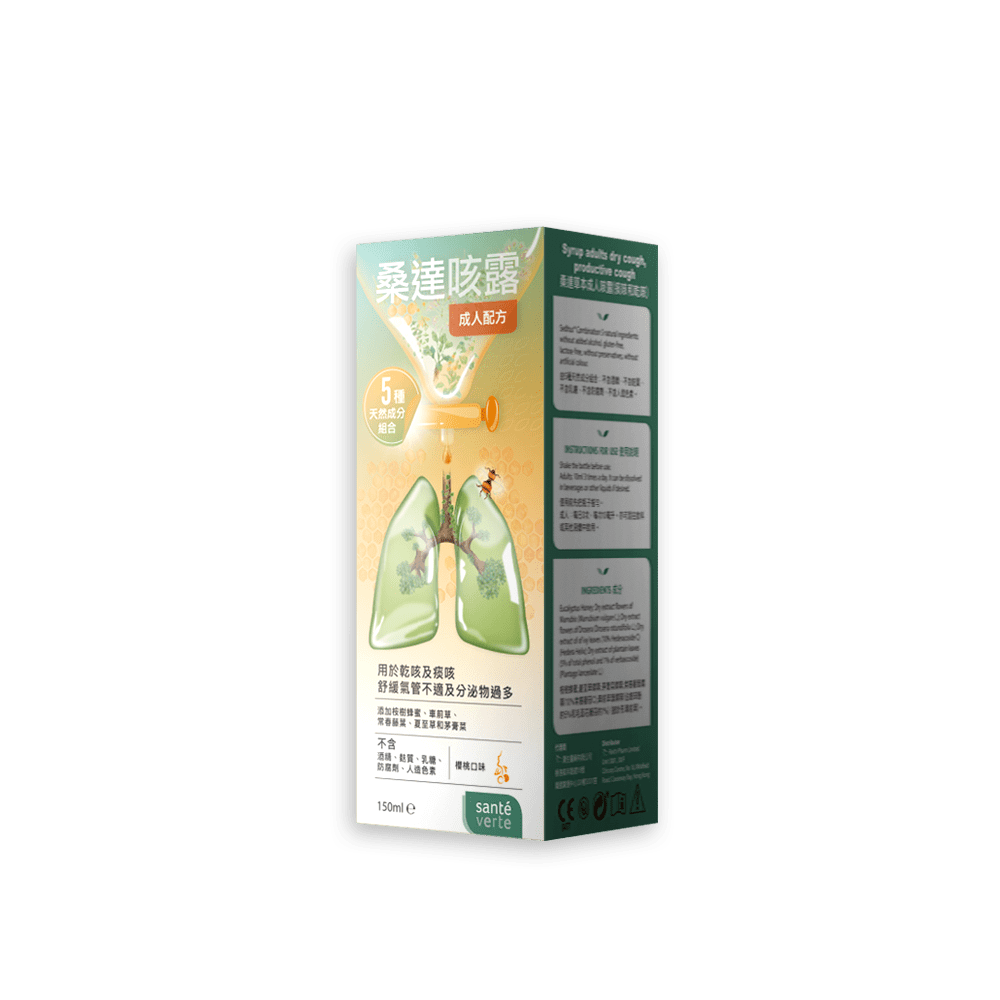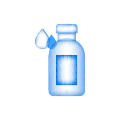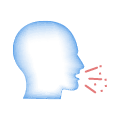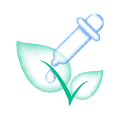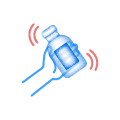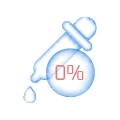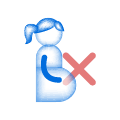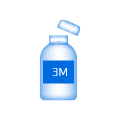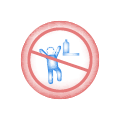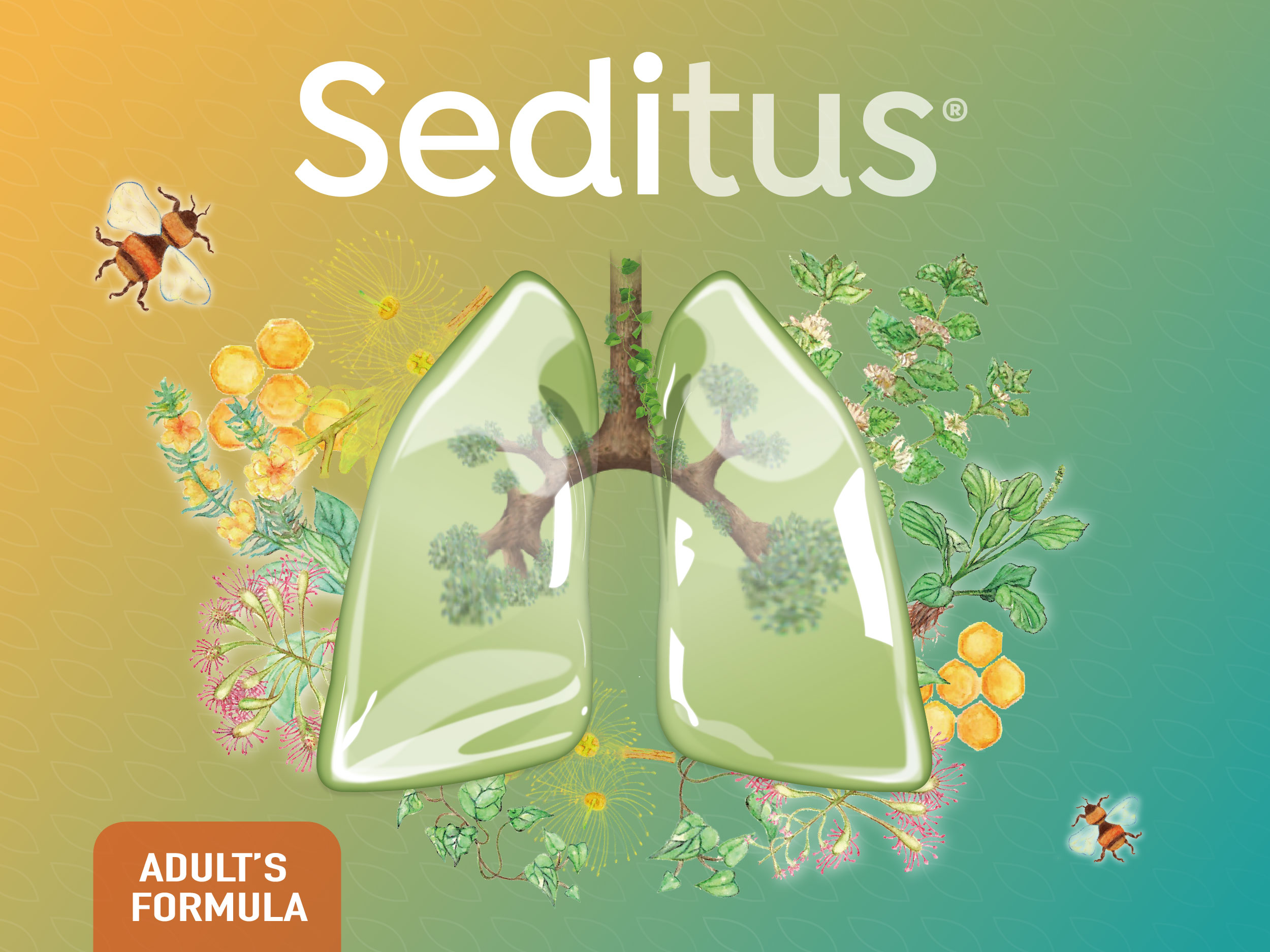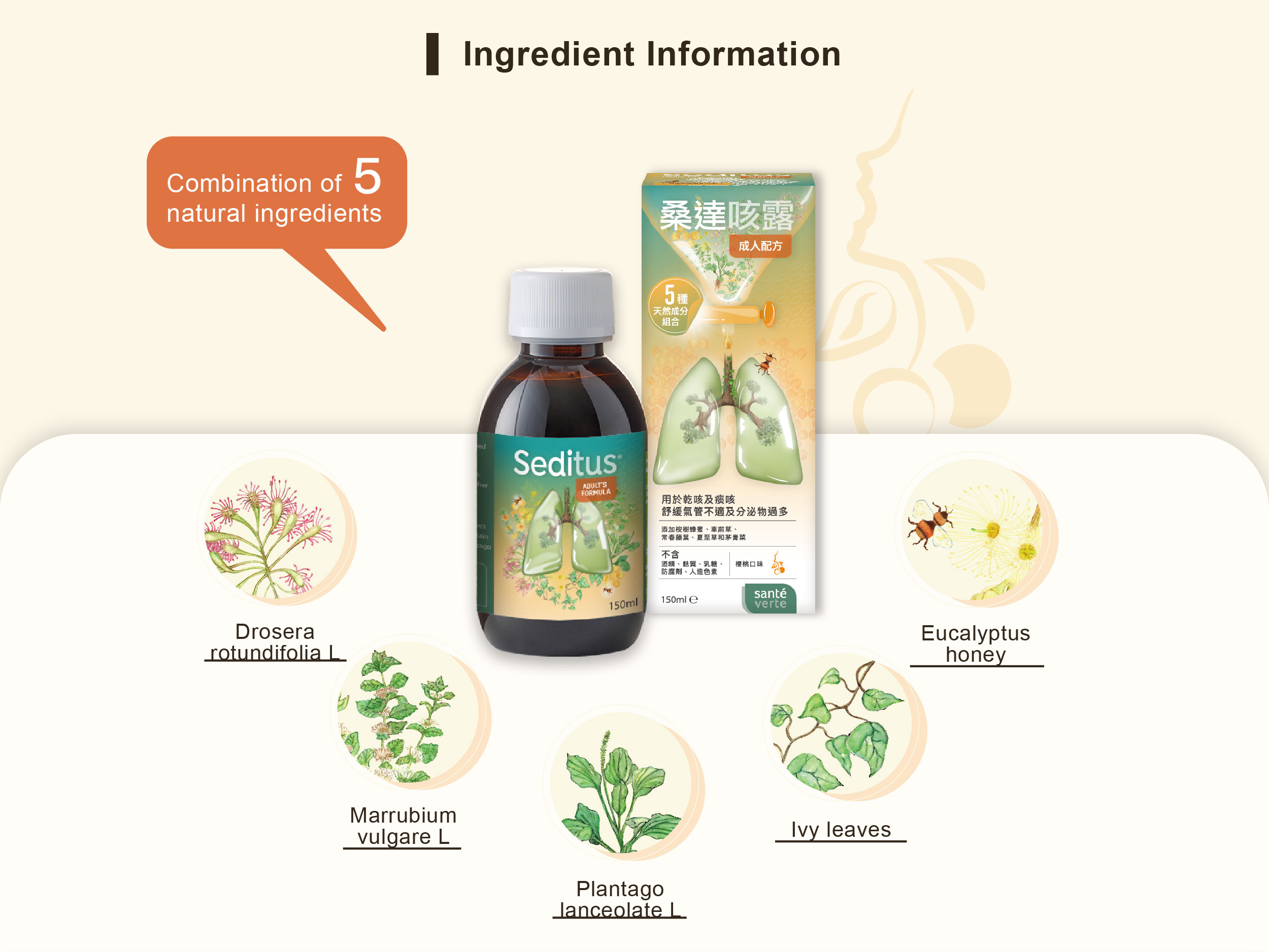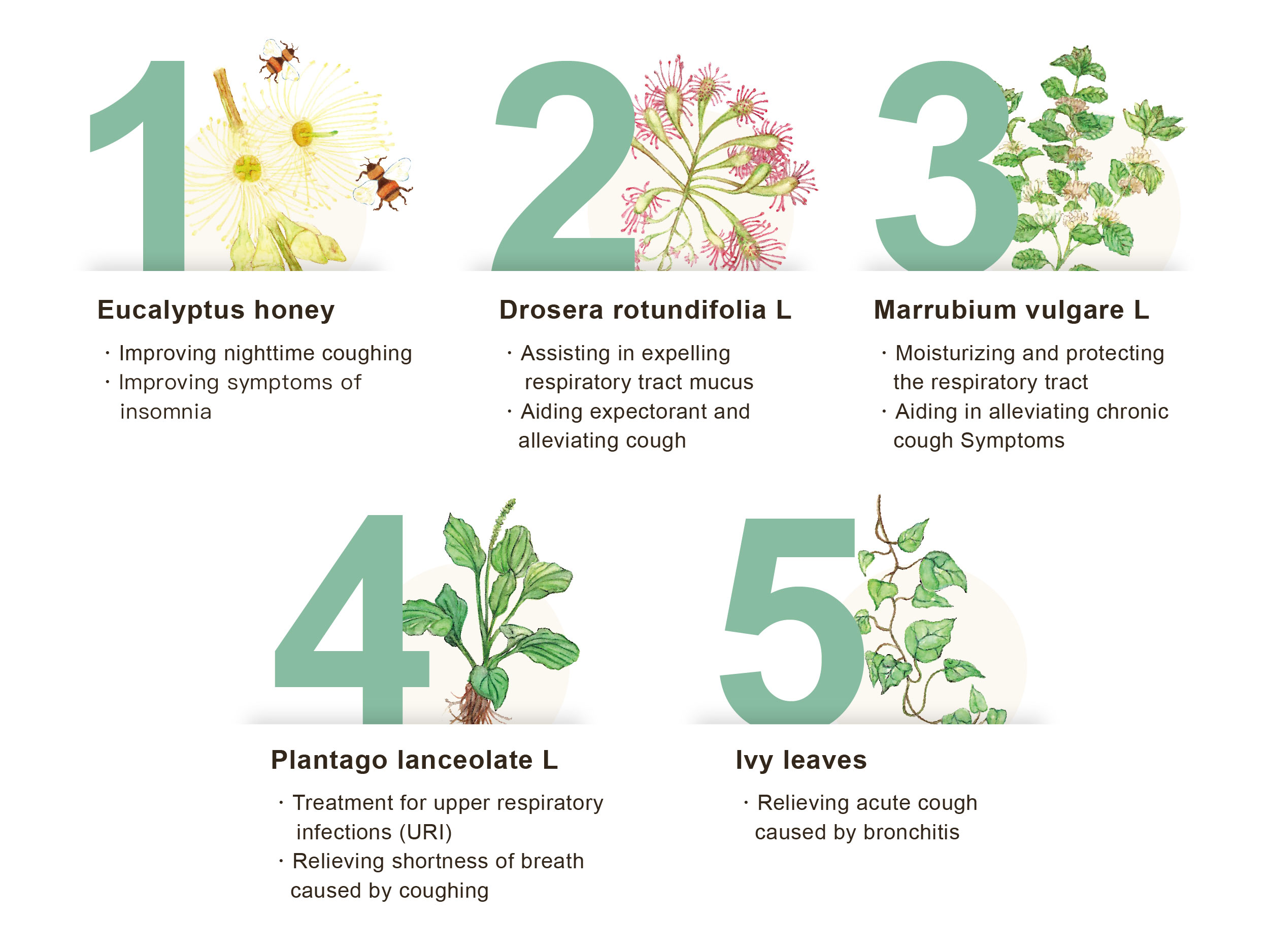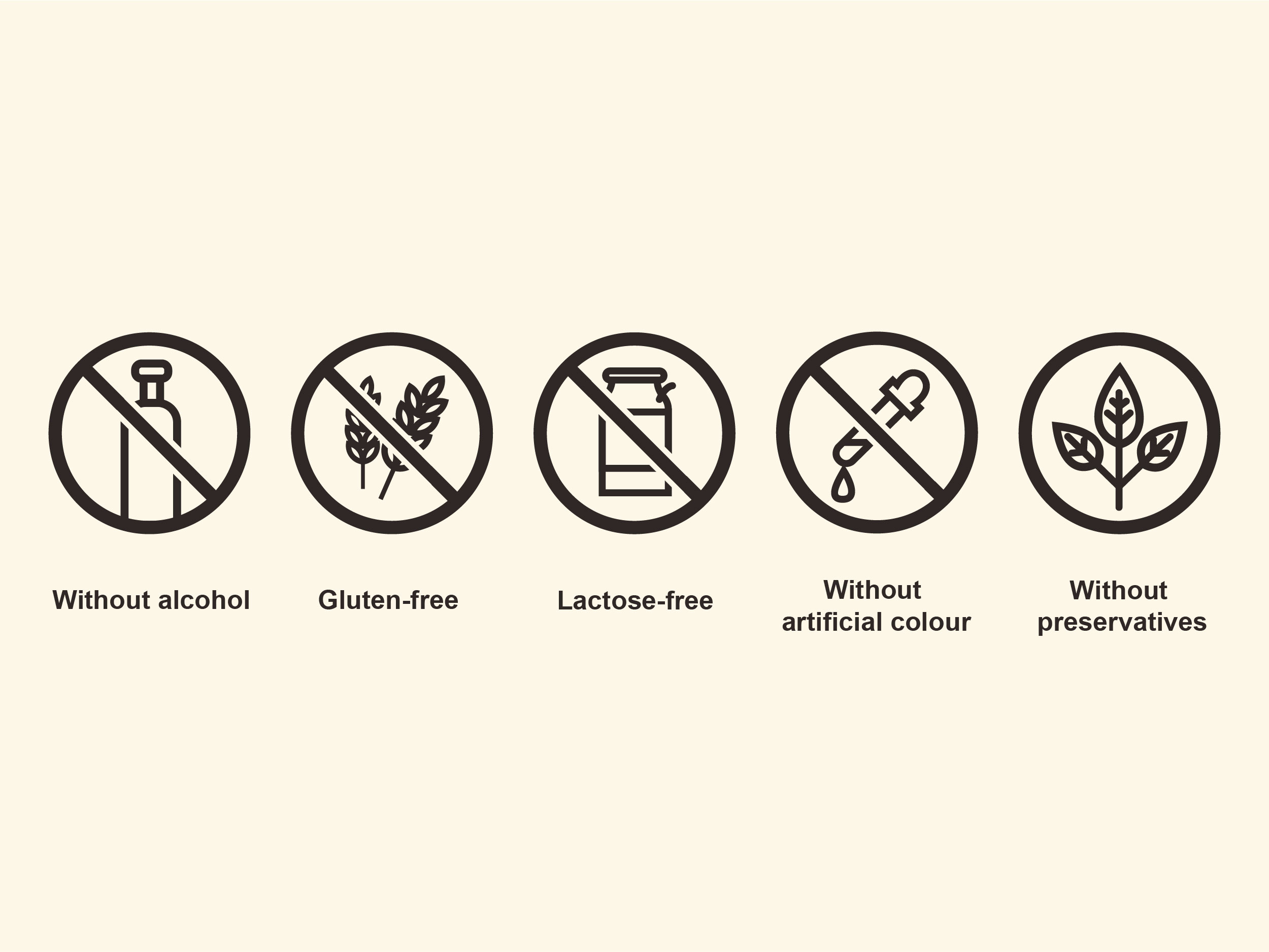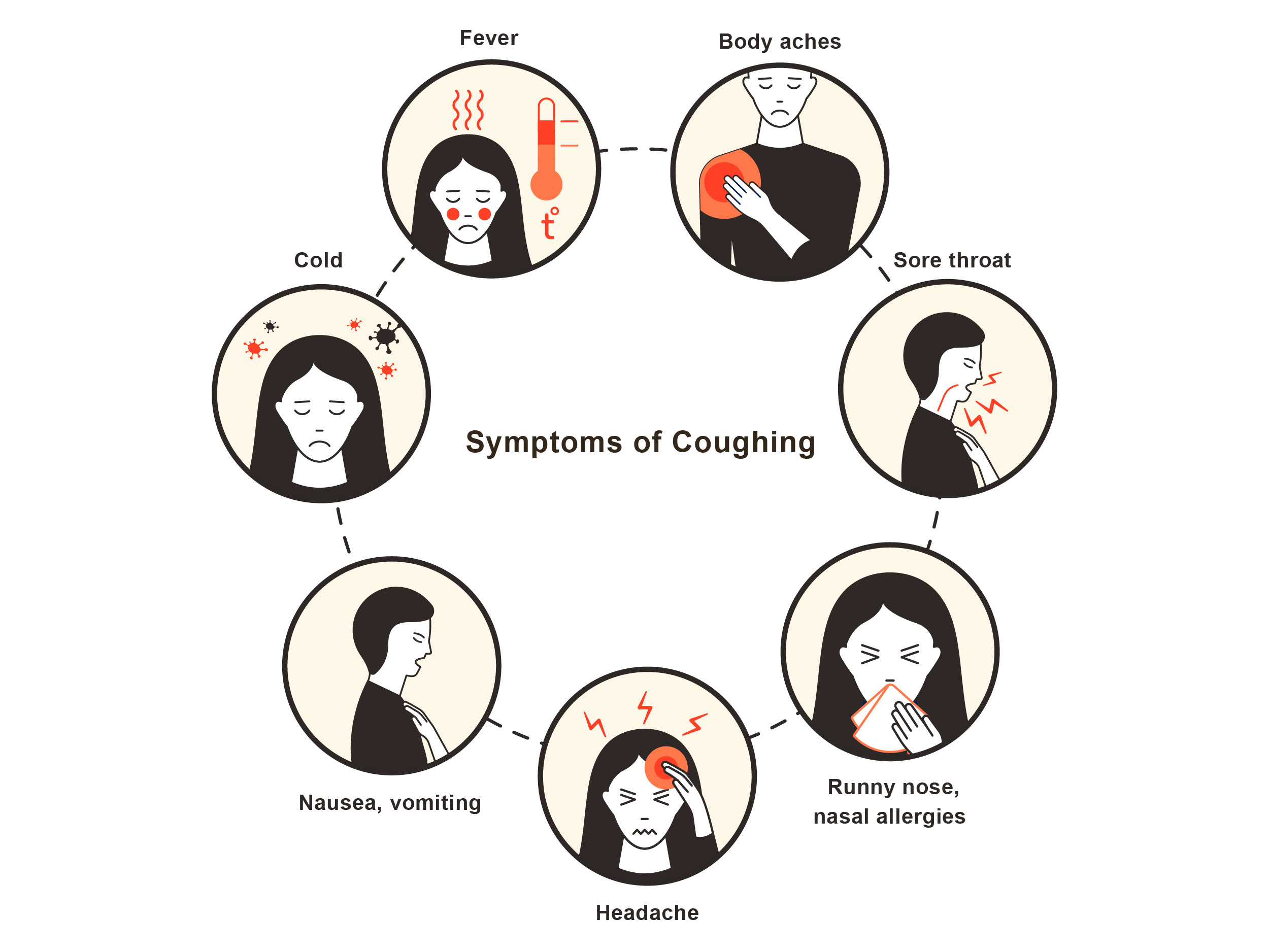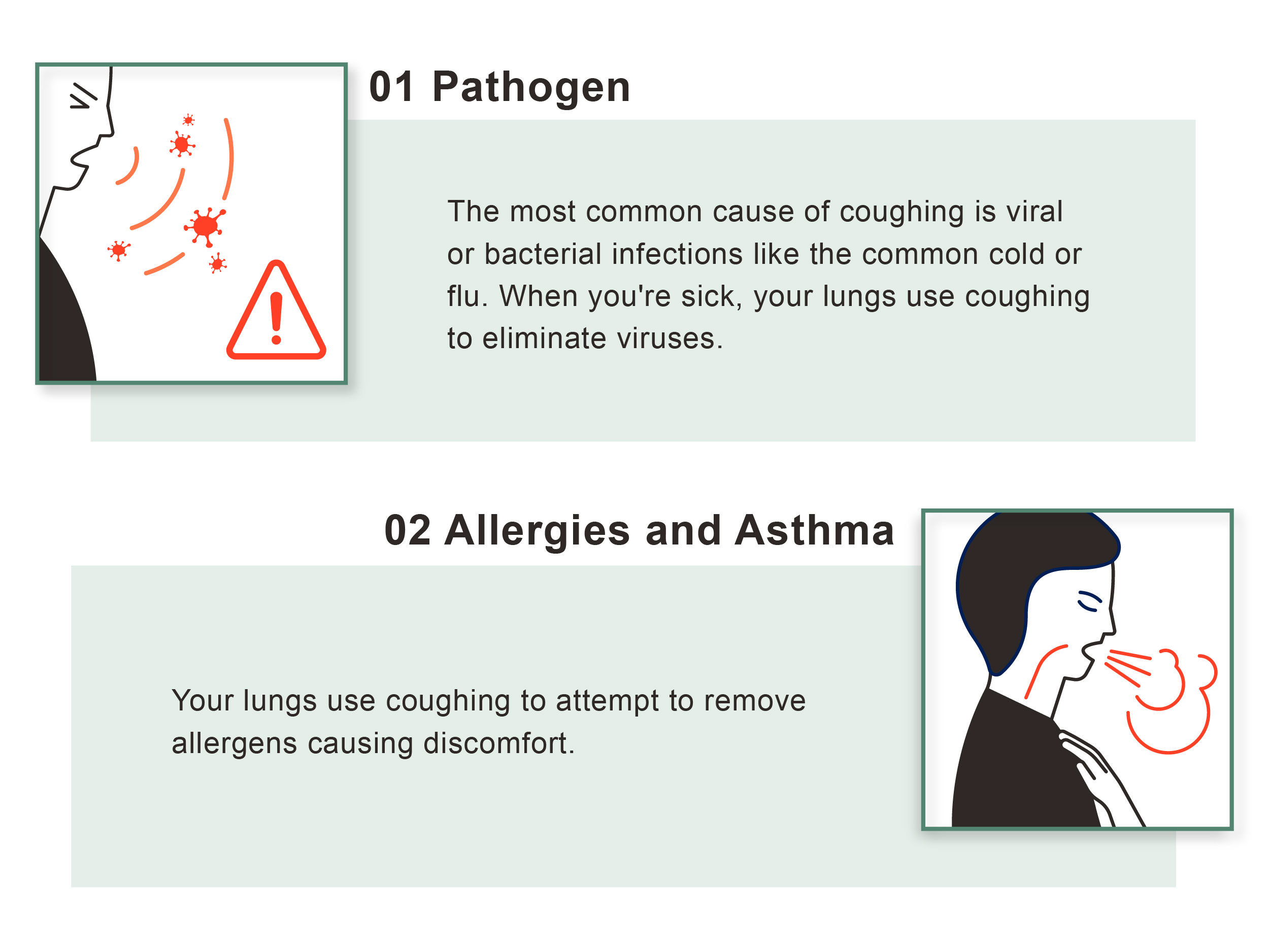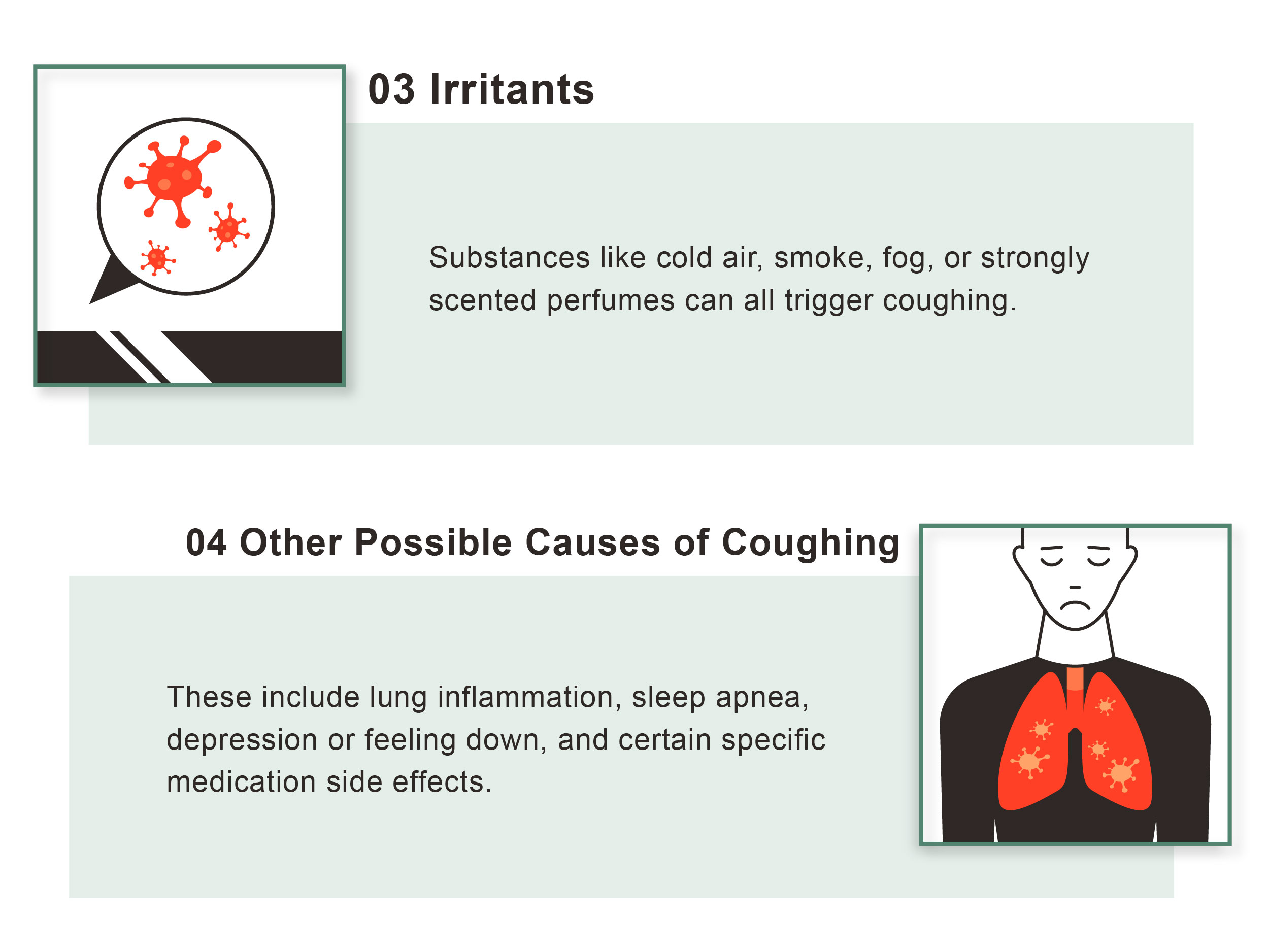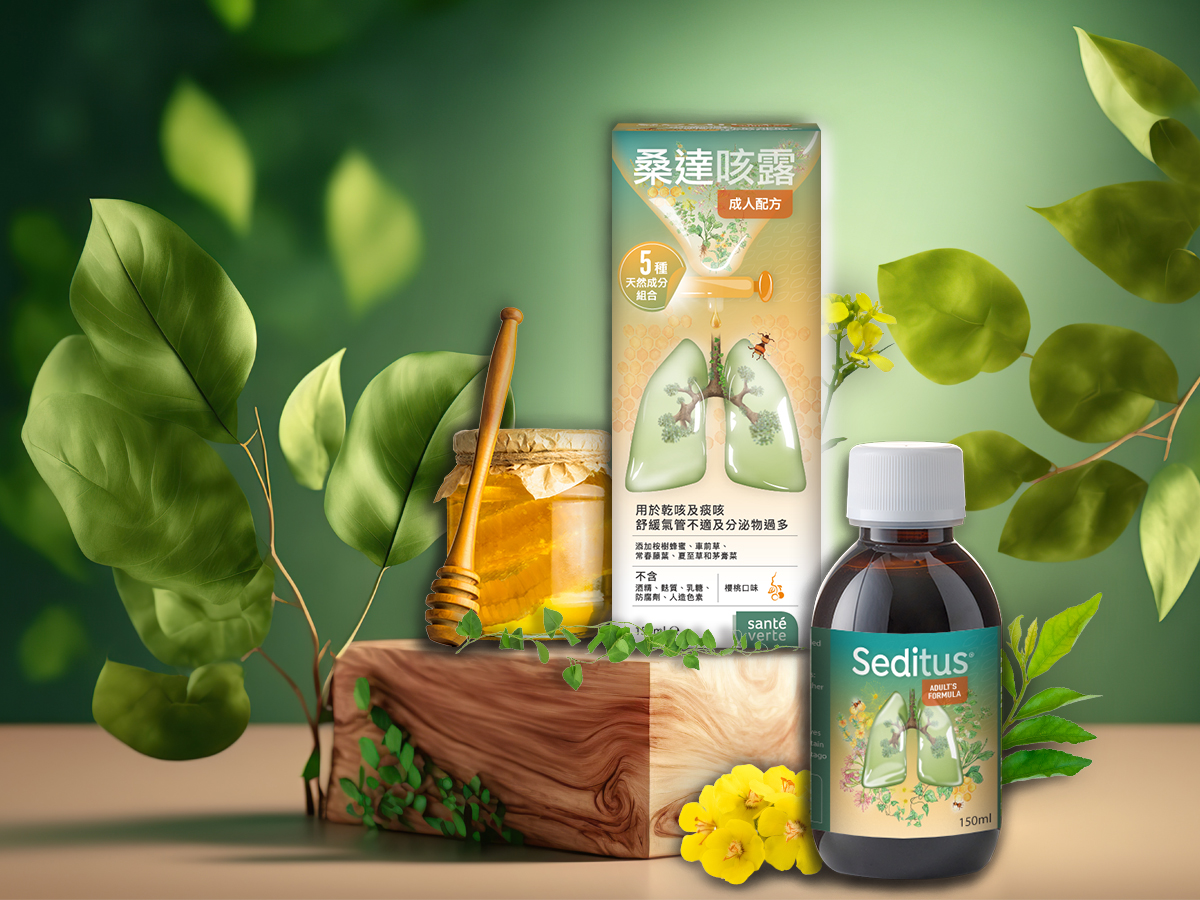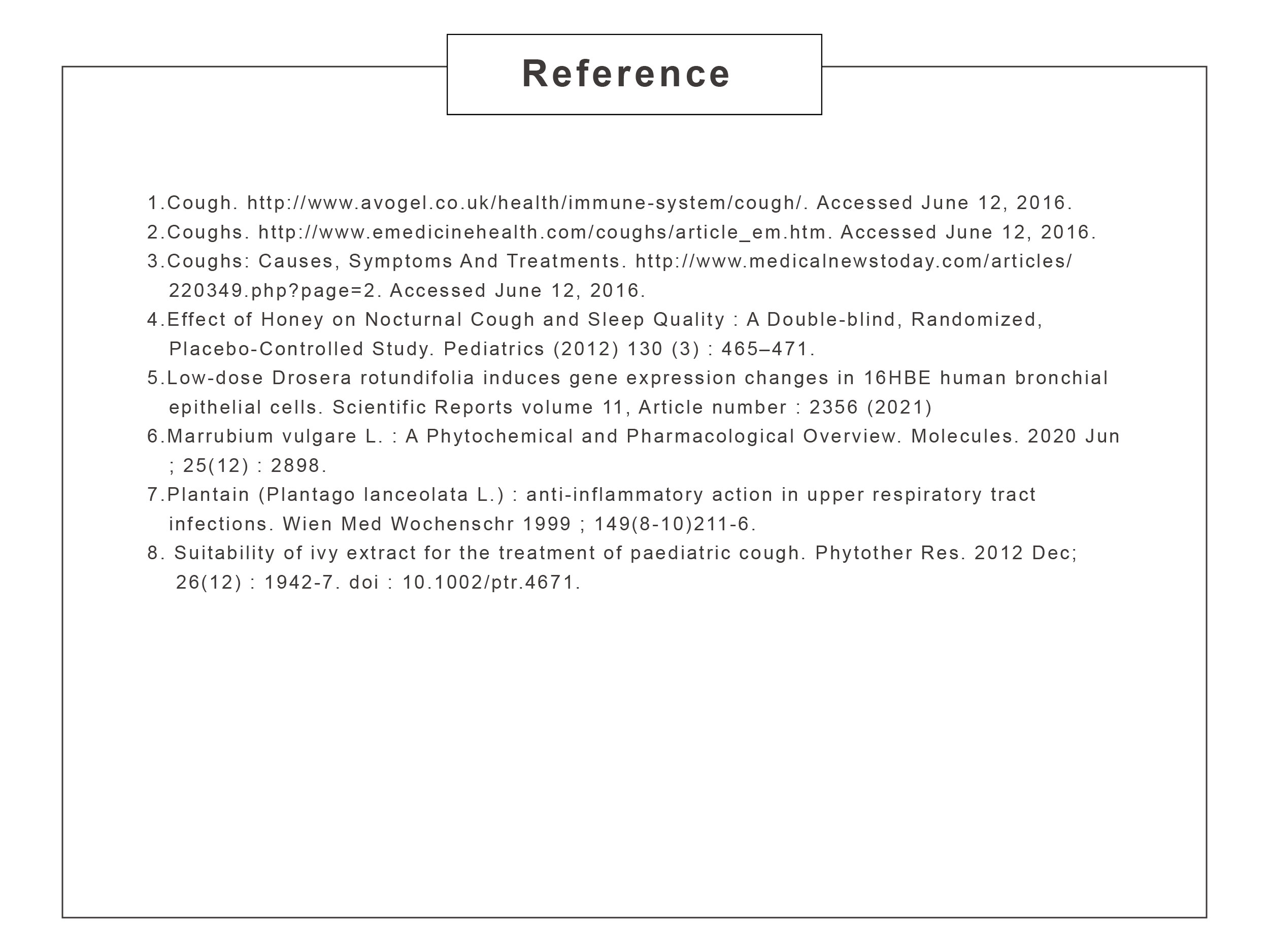01 / 03
Seditus® Cough
by Sante Verte
IntroductionMedication Usage
Seditus ADULT’S FORMULA
Ingredient Introduction
1.Eucalyptus honey
- Research has shown a significant improvement in nighttime cough and sleep difficulties associated with upper respiratory infections (URI) in children when comparing a single dose of three types of honey products (eucalyptus honey, citrus honey, or labiatae honey) to a placebo.
- Eucalyptus honey can alleviate symptoms of nighttime cough and sleep difficulties in children caused by URI.
2.Drosera rotundifolia L
- Since ancient times, Drosera rotundifolia syrup primarily composed of Drosera rotundifolia has been used to help clear respiratory mucus, enhance ciliary activity in the respiratory tract, and aid in expectoration and relieving cough.
- Drosera rotundifolia’s general effects on the respiratory system are described in homeopathy materia medica, including its use for excessive phlegm, spasmodic, paroxysmal, dry, and irritative coughs, similar to whooping cough. This plant is often a component of homeopathic formulations used to treat complex upper respiratory conditions.
- Clinical studies have analyzed the efficacy of such therapies in alleviating symptoms or improving quality of life, and have reported positive outcomes.
3.Marrubium vulgare L
- It can moisturize and protect the respiratory tract, aiding in improving symptoms of chronic cough.
- It helps to relax bronchial secretions and eliminate mucus.
4.Plantago lanceolate L
- Plantain is used to treat upper respiratory tract infections. Experimental research has confirmed its anti-inflammatory, antispasmodic, and immune-stimulating effects.
- Plantain has shown significant results in alleviating moderate chronic irritative cough and can relieve cough-induced breathlessness, especially in children.
5.Ivy leaves
- Suitable for acute cough caused by upper respiratory tract infections (URI) and bronchitis, it alleviates discomfort in the bronchial passages.
- The effectiveness and tolerability of ivy leaf in treating acute URI in both adults and
Basic Concepts of Coughing
Coughing occurs when the cells of the respiratory tract become inflamed. Inflammation leads to the action of coughing. As a result of this inflammation, there is higher pressure when air is expelled from the lungs. Depending on the duration of onset and persistence of coughing, it can be categorized into acute, subacute, and chronic types.
Coughing often comes with symptoms, which can be chronic or acute. Common symptoms include:
Some symptoms may not be listed above. If you have concerns about any symptoms, please consult your doctor or a healthcare professional.
Risk Factors for Coughing
Environmental stimuli from your surroundings can worsen coughing. For example, smokers often experience coughing, which can improve if they quit smoking, but worsen if they continue. For individuals with chronic lung conditions such as asthma or chronic bronchitis, persistent coughing might occur in specific settings or activities. Some medications, like Angiotensin Converting Enzyme (ACE) inhibitors, can lead to coughing. However, once the medication is stopped, the cough often becomes dry and improves.
Causes of Coughing When irritants are present in your lungs, the body’s natural response is to cough to expel those irritants. Many things can stimulate your lungs, such as :
Coughing caused by common cold flu typically resolves on its own quickly. If you experience the following symptoms, it’s advisable to see a doctor promptly :
1.Dizziness after coughing
2.Coughing up blood
3.Chest pai
4.Persistent nighttime coughing
5.Fever
6.No improvement in coughing after seven days
7.Shortness of breath or difficulty breathing
Commonly Used Medications for Treating Cough
Coughing caused by viral infections typically resolves on its own. Nevertheless, the following medications can alleviate symptoms or assist the immune system in combating related diseases:
1.Cough suppressants, including Pholcodine, Codeine, Dextromethorphan, and antihistamines.
2.Cough medicine containing expectorants and antitussives.
3.Antibiotics
To learn more about “Common Cough Medications”, you can refer to the “Seditus Cough Syrup Series News” page for information.
Lifestyle Adjustments and Home Remedies for Soothing Coughing
The following lifestyle adjustments and home remedies can help alleviate coughing:
1.Get adequate rest, as it boosts the immune system’s ability to effectively fight off viral invasions.
2.Drink plenty of water or clean fluids to stay hydrated.
3.Reduce smoking or quit altogether.
4.Avoid damp and humid places.
5.When coughing, consuming honey can soothe the throat, preventing and reducing the severity of coughing.
*Friendly reminder: Before using this product for infants, children, or pregnant women, please consult with a pharmacist, specialized doctor, or healthcare professional at your local pharmacy.
